Degree Components
The Degree component guidelines were created with the input and feedback provided by Academic Deans, Associate Deans, Department Chairs, Office of the Registrar and the University Curriculum Committee. Programs approved prior to March 28, 2017 will be grandfathered in, however, any new programs or program requiring modification will need to follow the prescribed guidelines below, concentration additions will require your program be brought in line with all outlined requirements even if it had previously been grandfathered in. The Office of Academic Affairs will ensure the guidelines abide by the policies of the Tennessee Higher Education Commission (THEC).
Associate Degrees
Total program design demonstrates coherence. “The term “coherence”.... reflects an expectation that, as a student progresses through a program of study, the content of the program demands increasing levels of integration of knowledge. Coherence is a critical component of a program and should demonstrate an appropriate sequencing of courses, not a mere bundling of credits, so that student learning is progressively more advanced in terms of assignments and scholarship required and demonstrates progressive advancement in a field of study that allows students to integrate knowledge and grow in critical skills” (SACSCOC Resource Manual, Standard 9.1, p. 76)
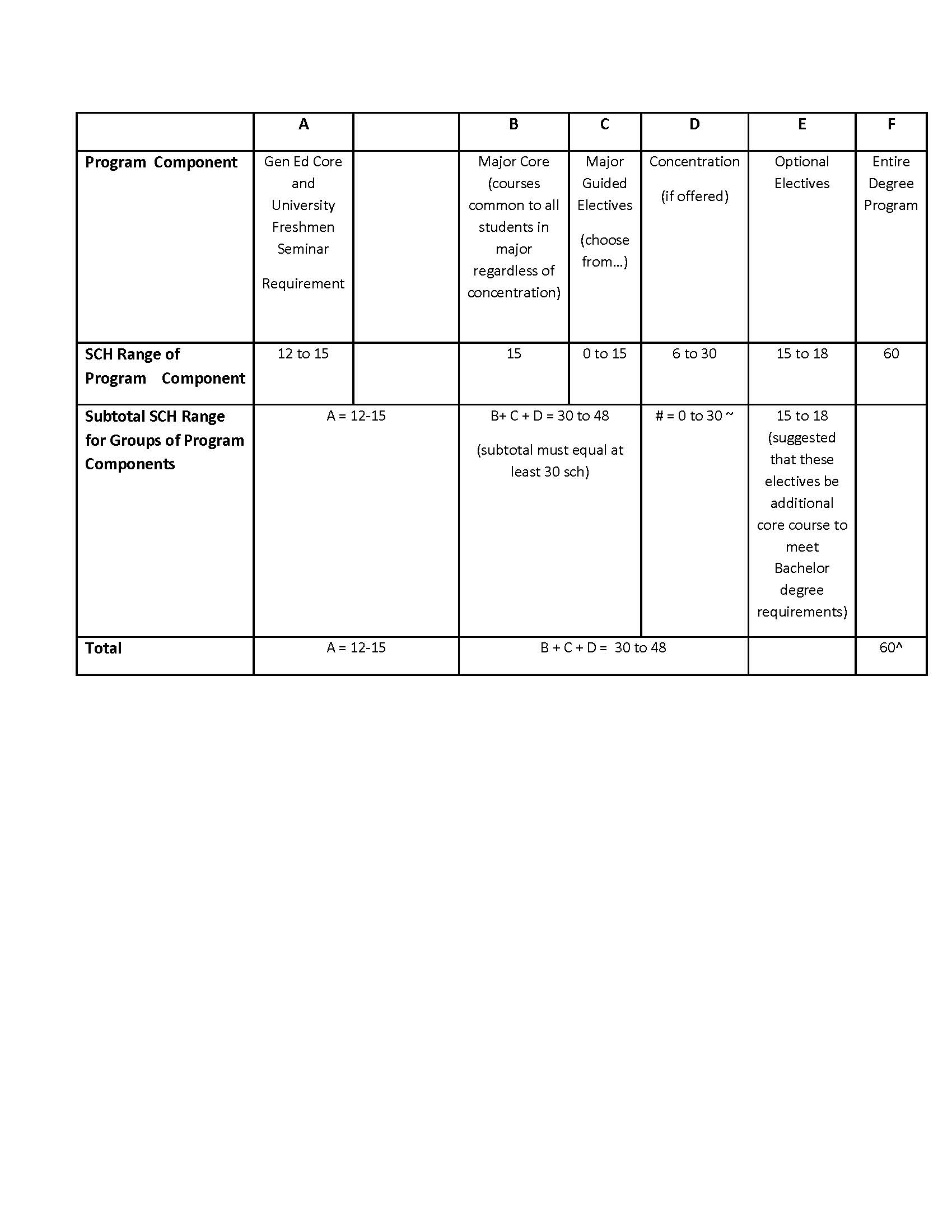
Baccalaureate Degrees
Total program design demonstrated coherence, "appropriate sequencing of courses, not a mere bundling of credits, so that student learning is progressively more advanced in terms of assignments and scholarship required and demonstrates progressive advancement in a field of study that allows student to integrate knowledge and grow in critical skills" (SACSCOC Resource Manual, CS 2.7.2 -p. 19).
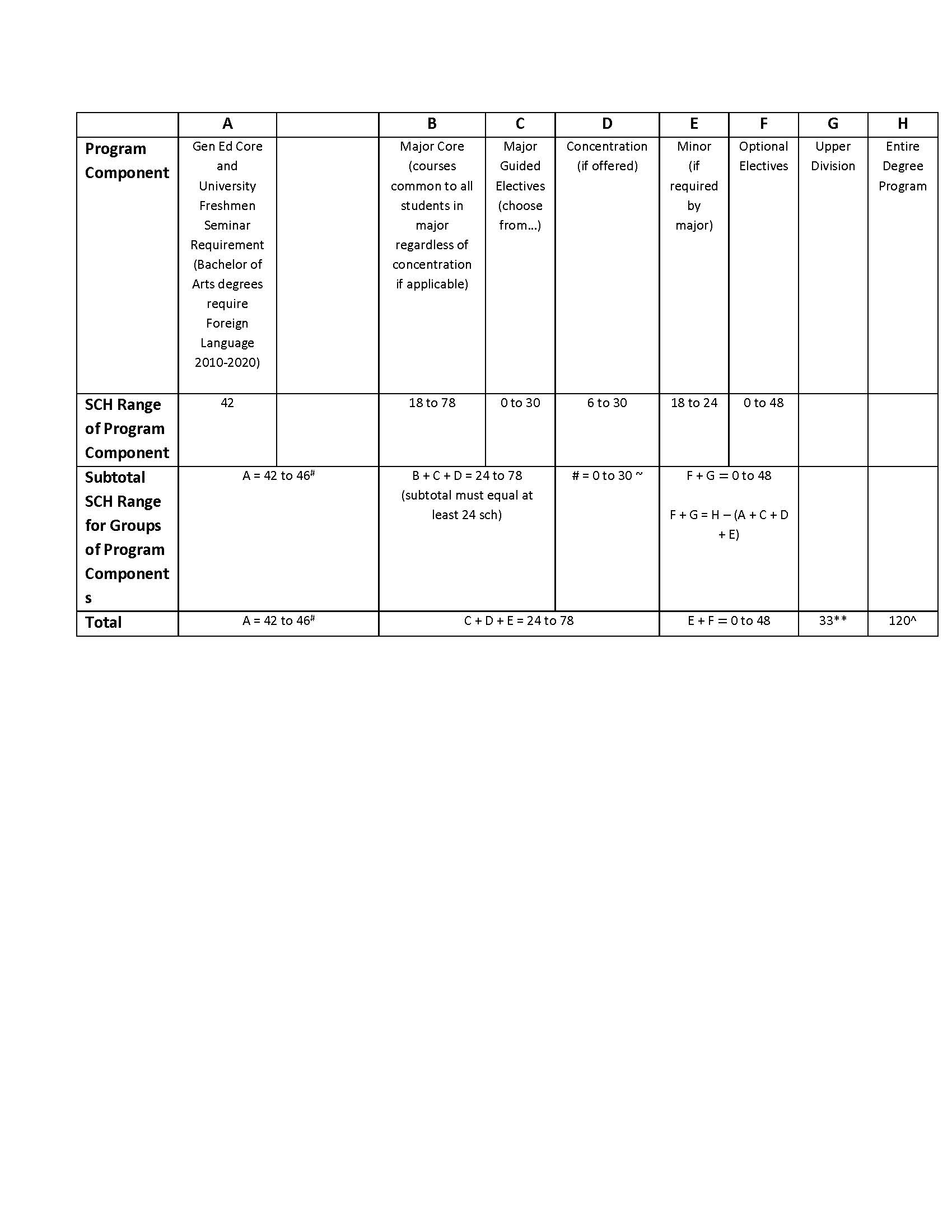
Minors
Minors should be optional, unless required by specialized program accreditor, licensure, or other special program requirements. Existing majors with required minor can request an exception to the Dean and then the Provost and Vice President for Academic Affairs.
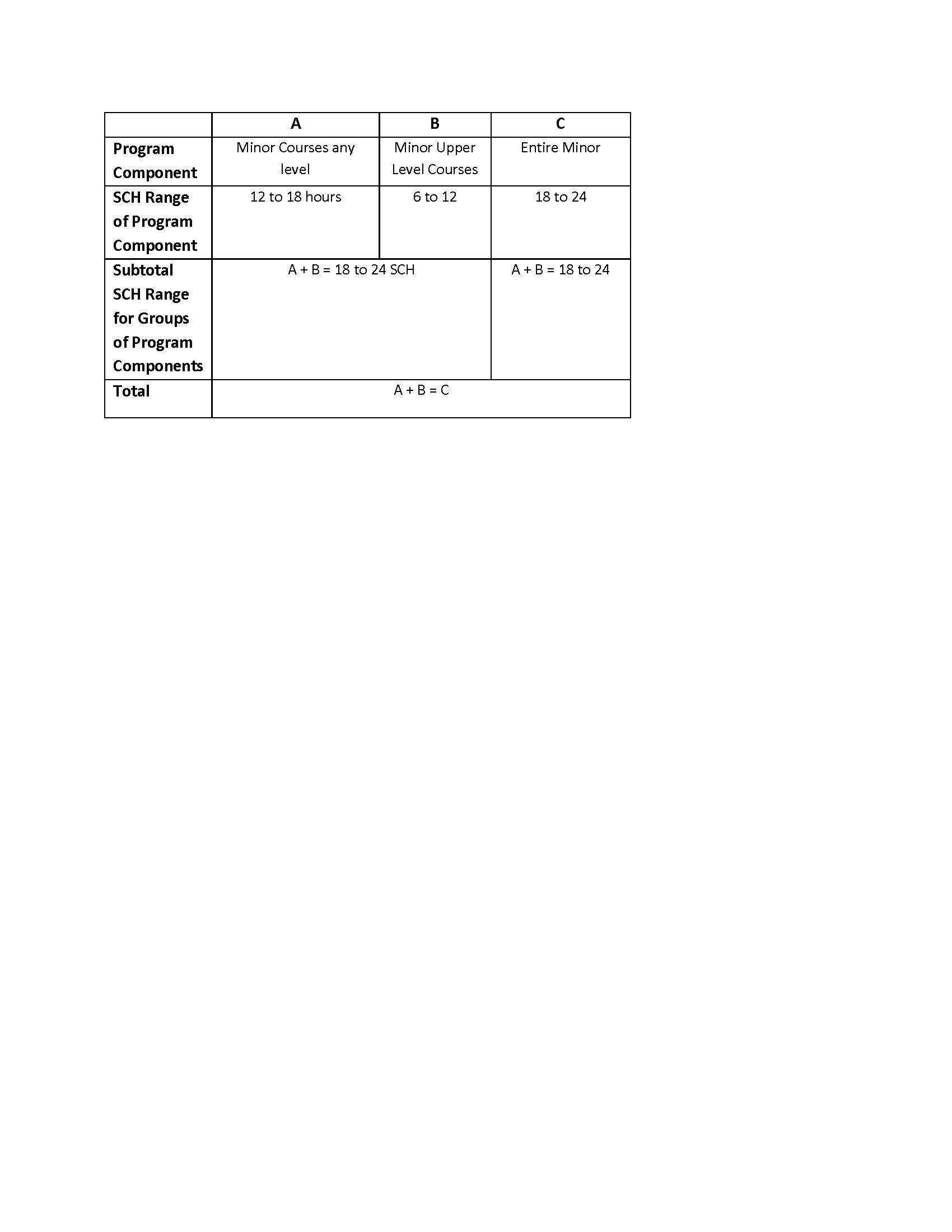
Master's Degrees
- Major core common to anyone enrolling in the major (credit hour range 9 to 18 SCH).
- Concentration (required or optional) shall differ from the major core in required coursework by at least 6 SCH and not more than 30 SCH.
- Total of graduate degree program must equal 30 to 45 SCH unless specialized program accreditor, state licensure, or other external requirement for a program length exceeds 45 credit hours. In those cases, permission of University Curriculum Committee and Provost is required to exceed APSU maximum program length.
Total program design demonstrates coherence, "appropriate sequencing of courses, not a mere bundling of credits, so that student learning is progressively more advanced in terms of assignments and scholarship required and demonstrated progressive advancement in a field of student that allows students to integrate knowledge and grow in critical skills" (SACSCOC Resources Manual, CS 2.7.2 -p. 19).
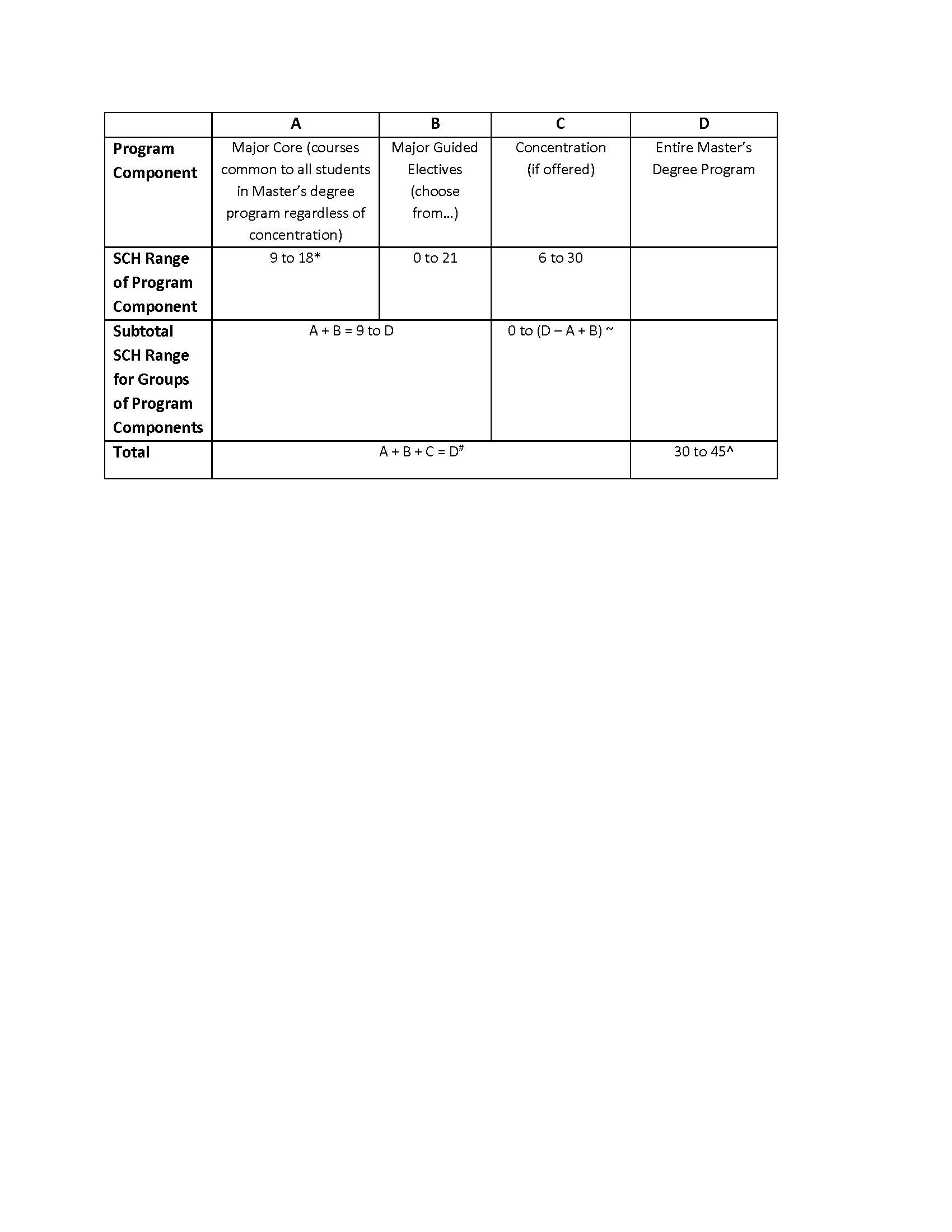
Doctoral Degree
- Doctoral Program must have a minimum of 60 credit hours beyond the baccalaureate degree
- Exceptions to the minimum number may occur due to licensure and/or accreditation
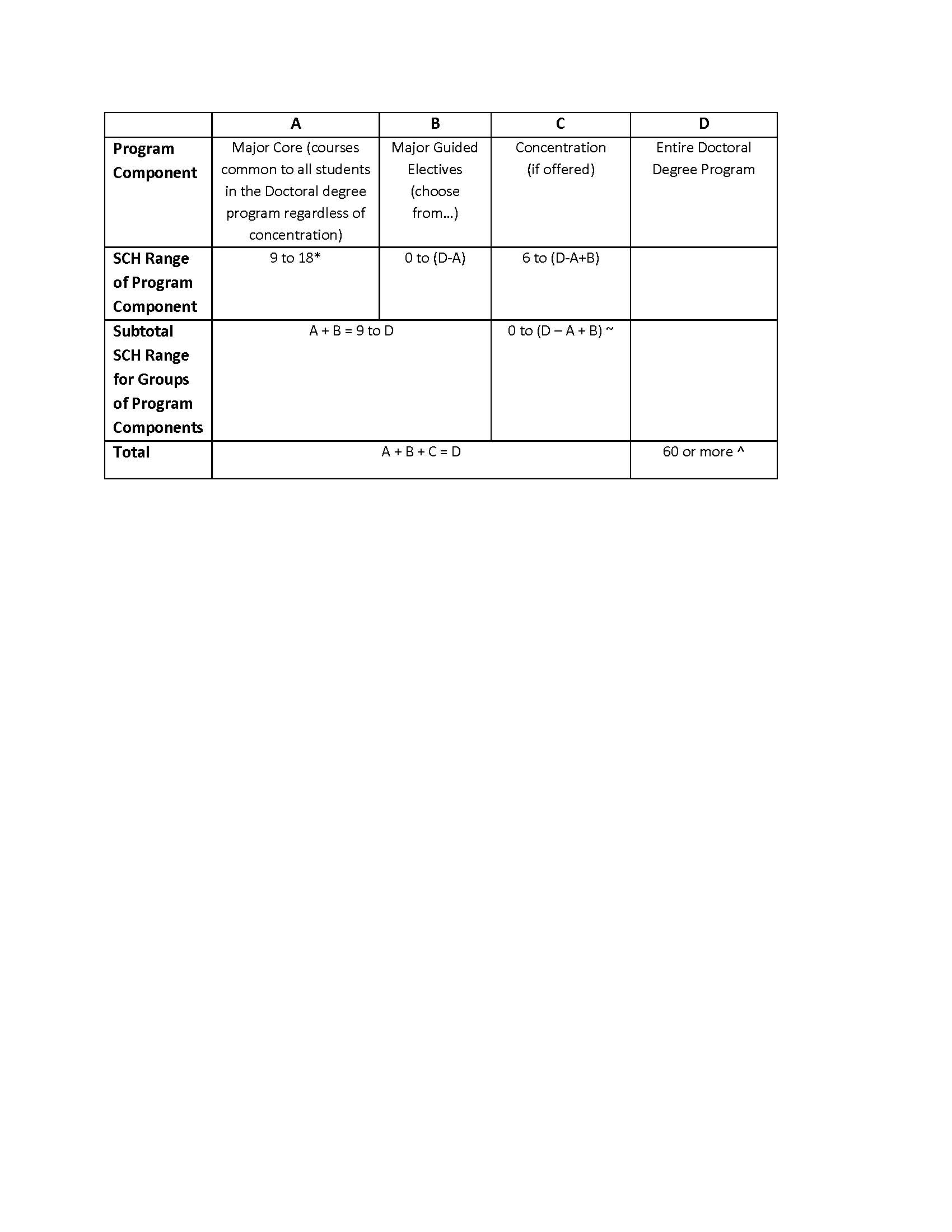
Certificate Programs
- Certificate Core requires a minimum of 6 SCH and a maximum of 24 SCH without THEC approval
- Certificate Guided Electives may be required but should not exceed a total of 18 SCH
- Certificate requirements should be a minimum of 9 total SCH
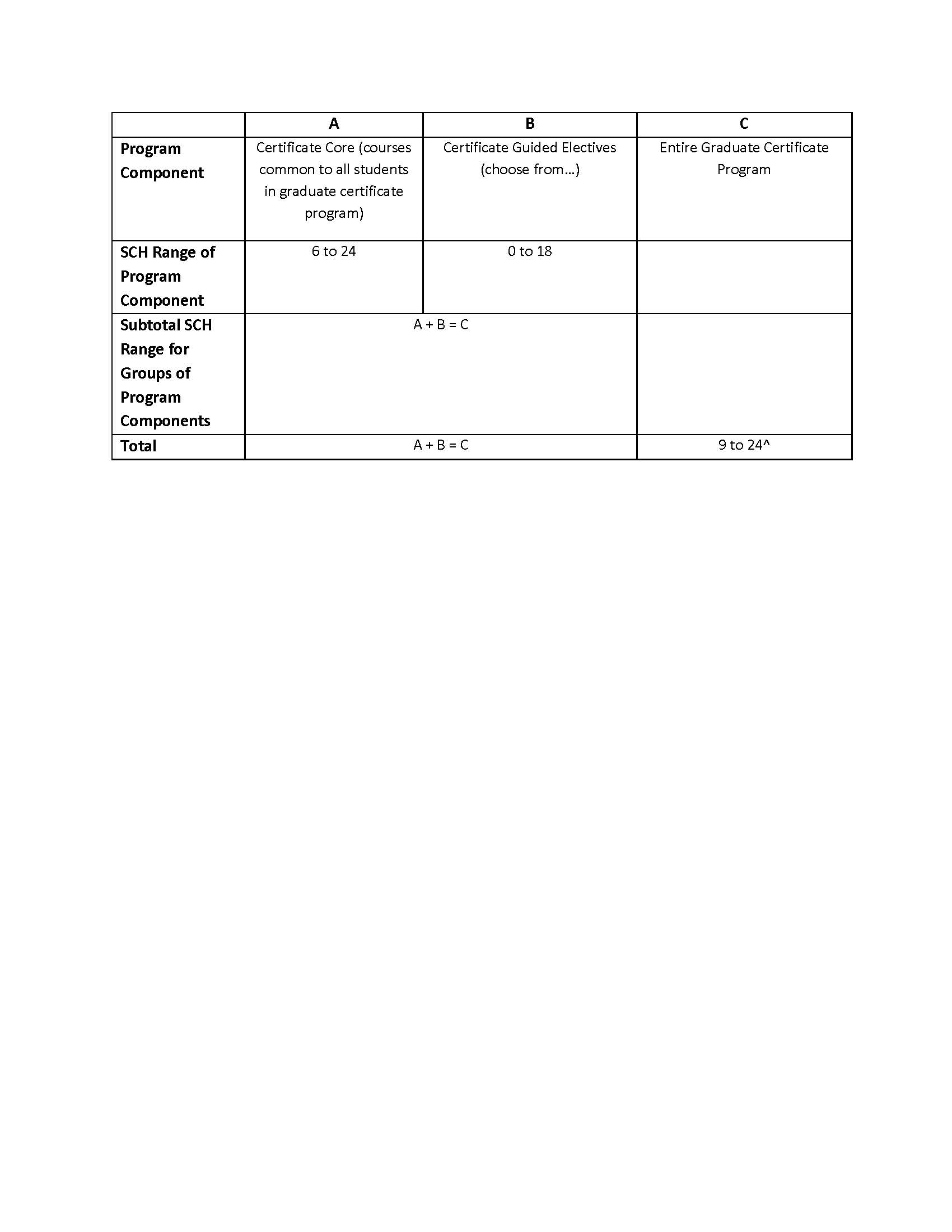
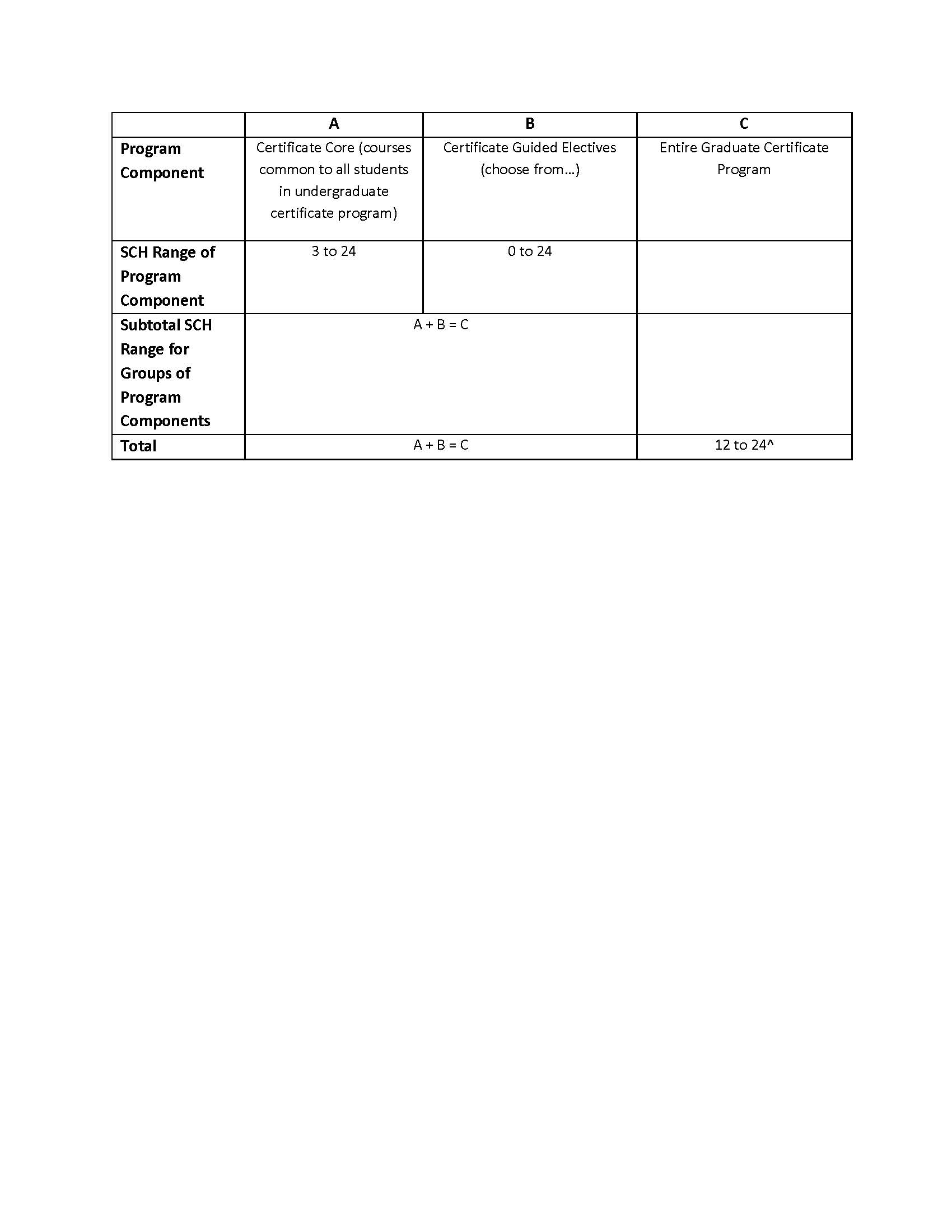
Please visit Guidelines for Program Length, Components, Definitions and Criteria for Development to view the document in its entirety.